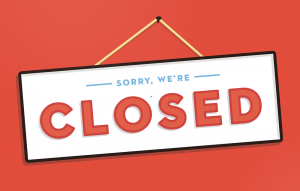 Business owners understand the importance of maintaining adequate insurance coverage to prevent large out-of-pockets costs in the event of a catastrophe. However, many don’t consider the additional loss of income that they will suffer while a business is closed for repairs. Renovations and rebuilding due to a fire or damage from a natural disaster can result in significant loss of income while the business is shut down. Purchasing business interruption insurance can help replace this lost income.
Business owners understand the importance of maintaining adequate insurance coverage to prevent large out-of-pockets costs in the event of a catastrophe. However, many don’t consider the additional loss of income that they will suffer while a business is closed for repairs. Renovations and rebuilding due to a fire or damage from a natural disaster can result in significant loss of income while the business is shut down. Purchasing business interruption insurance can help replace this lost income.
Business Interruption Coverage Basics
A business interruption insurance policy provides monetary assistance in the case of lost revenue due to a business being forced to shut down. The reasons for business closure are typically limited to damage from a natural disaster, a fire or a limited number of other events included in the policy. Additionally, there is typically a 48 hour waiting period before the coverage begins after a claim is submitted. The business interruption policy will reimburse business owners for the following expenses:
- Lost revenue that would have been earned had the business remained open. This amount is based on past financial records for the business.
- Operating expenses such as rent, utilities or other expenses that continue even though the business is not currently operating.
The prices for business interruption coverage vary because they are based on the amount of risk that the individual business presents. For example, a law office presents a much lower risk of fire than a restaurant and thus would have lower premiums.
Which Businesses Benefit?
Each company must measure its risk of financial loss to determine if business interruption insurance would benefit them. In performing an evaluation, business owners should consider the following aspects of their day-to-day operations.
- Does the business have other locations which could continue running and producing income while one was shut down?
- Does each location have specific revenue-generating tasks that can’t be performed by the other locations?
- Does the business location or locations have specialized equipment or facilities that would take a significant amount of time to repair or service?





